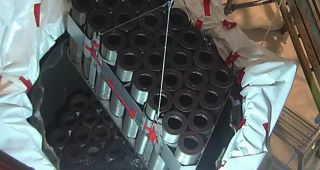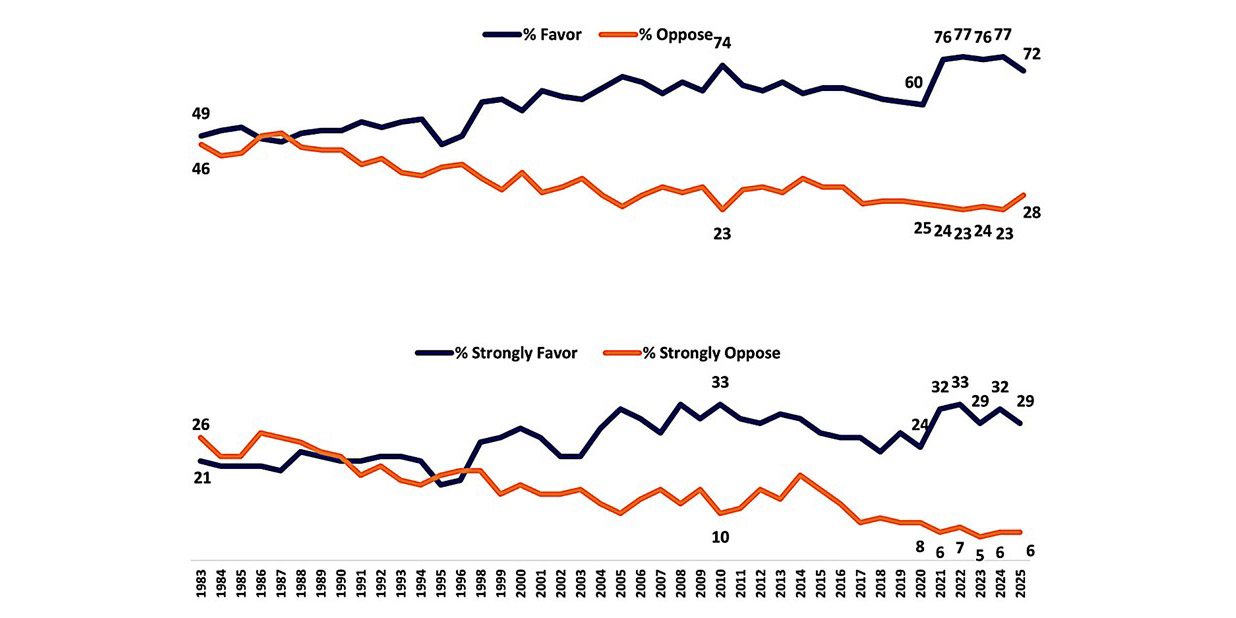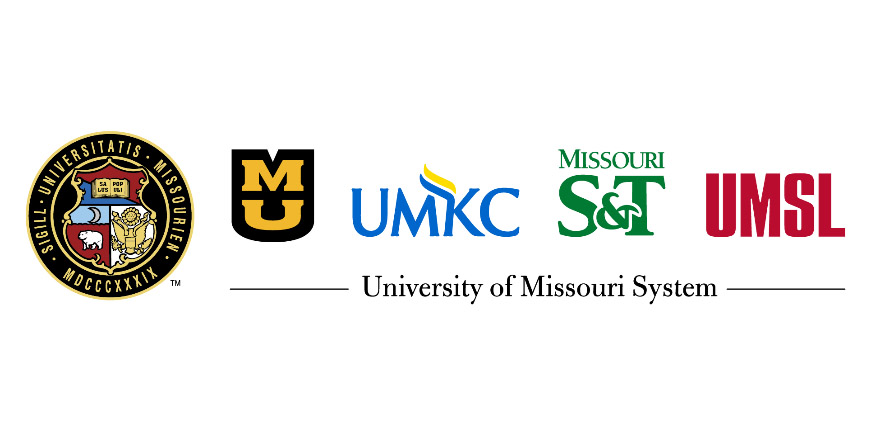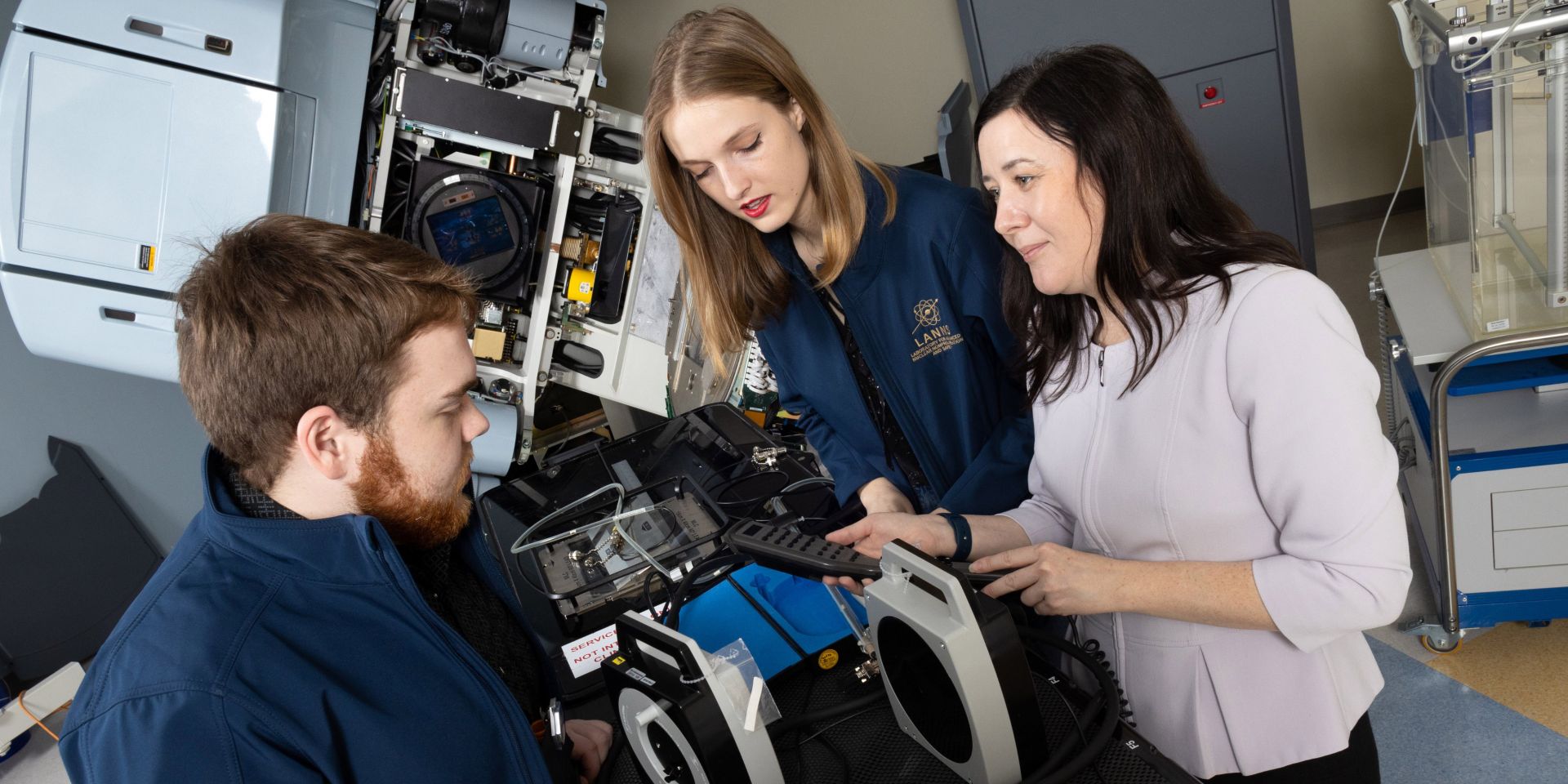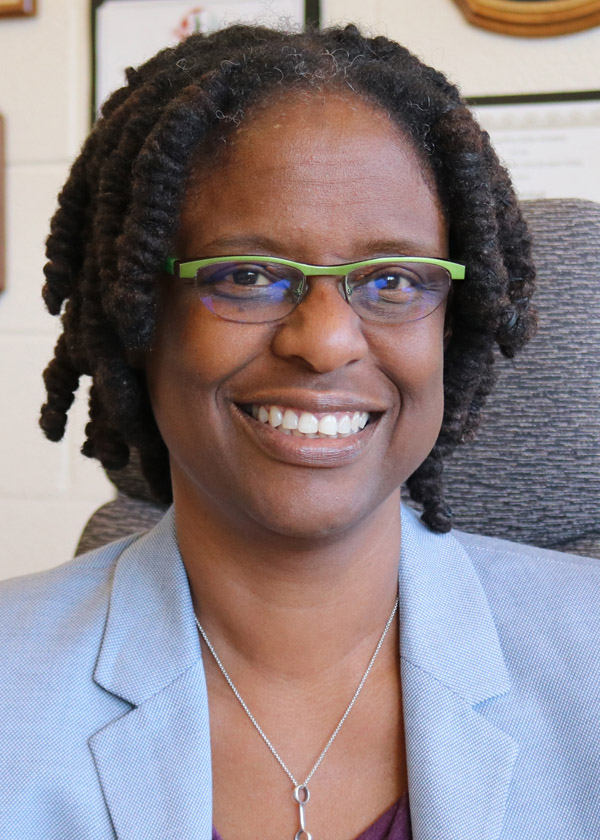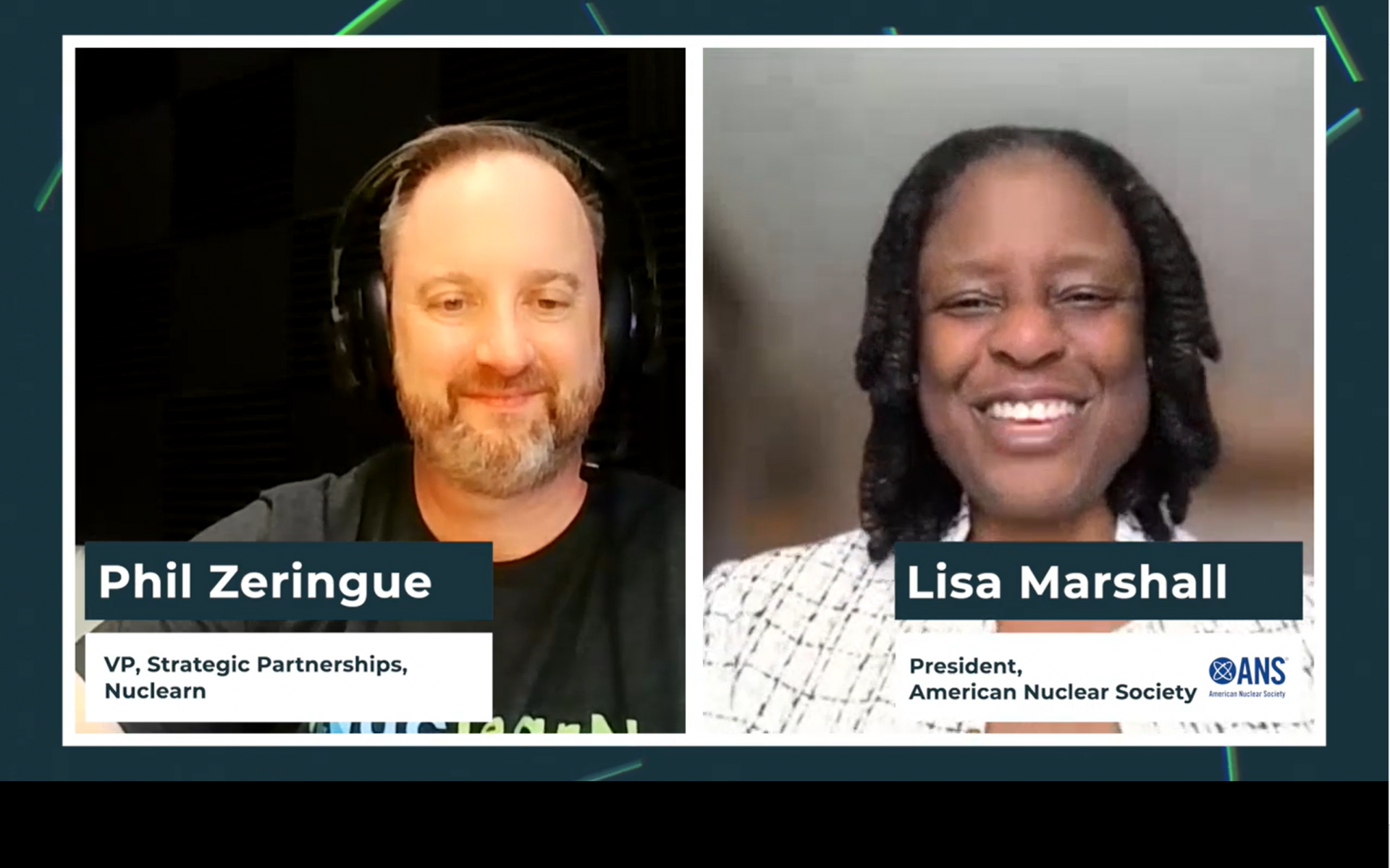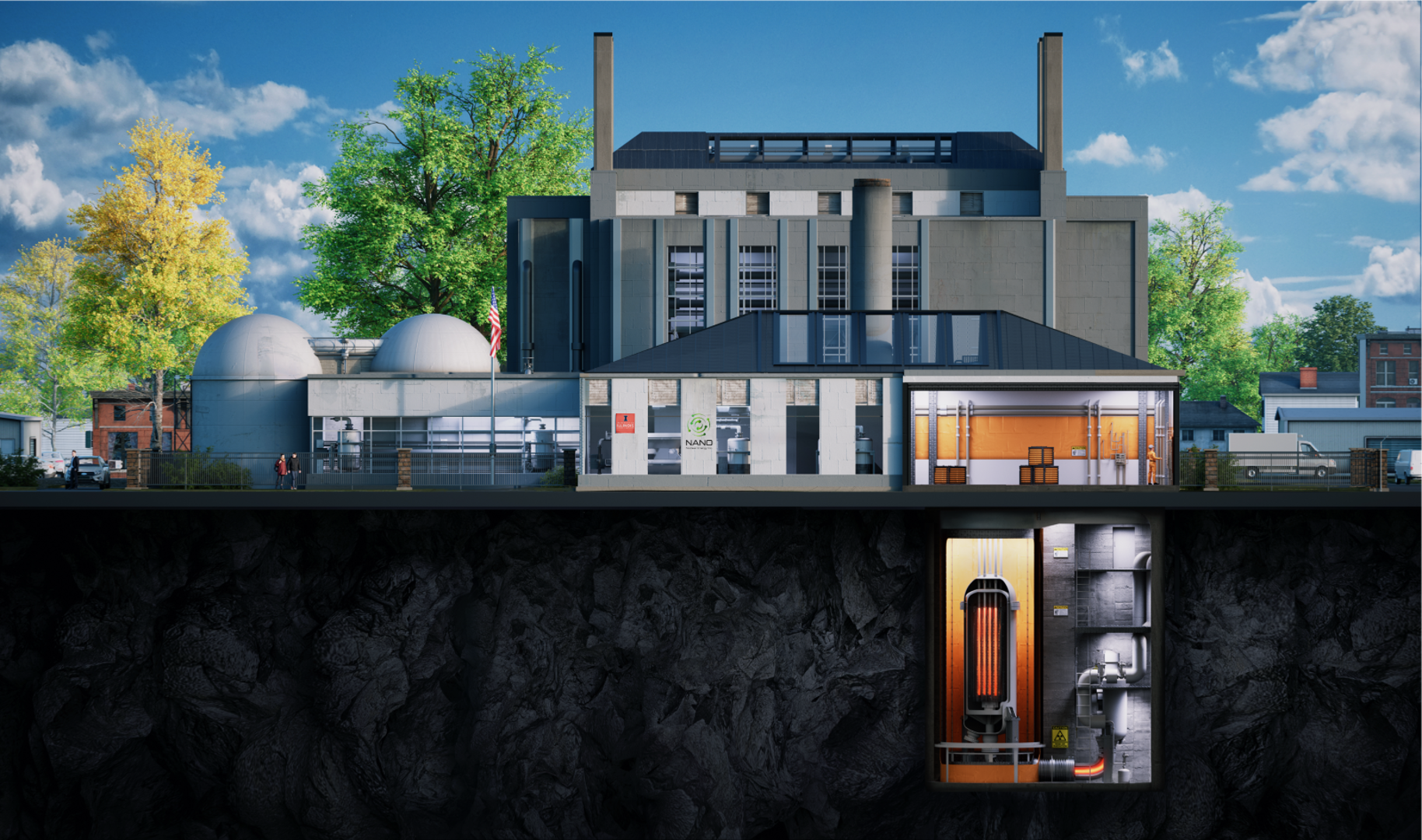Bisconti survey findings from 1983 to 2025 to the question, “Overall, do you strongly favor, somewhat favor, somewhat oppose, or strongly oppose the use of nuclear energy as one of the ways to provide electricity in the United States?” (Source: Bisconti Research Inc.)
Surveys have consistently indicated that public support in the United States for the use of nuclear energy has been increasing in recent years. Four recent surveys continue to suggest that near-record-high numbers of Americans support nuclear energy. However, the survey results differ—sometimes widely—in the details of their findings.
Ann Gibeaut (center row, second from left), Tim Adkins (center row, far right), and other volunteer educators with Civil Air Patrol cadets. (Photo: Boone Composite Squadron, Civil Air Patrol)
Husband-and-wife team Timothy Adkins and Ann Gibeaut are using Geiger counters supplied by the American Nuclear Society to educate young people in West Virginia about nuclear science and ionizing radiation. In 2022, ANS donated some old nonfunctioning Geiger counters to Tim and Ann, who recalibrated them and got them working again.
Looking down into K-State’s research reactor. (Photo: Kansas State University)
Olivia Belian and Joseph Holles hold the official chapter certificate awarded to the group last semester. (Photo: NMSU)
The newest student section of the American Nuclear Society has been launched at New Mexico State University. Formally approved and celebrated at the 2024 ANS Winter Conference and Expo, this newest community is the 59th active ANS student section, not including two sections currently in the process of revitalization.
The SMR control room simulator in NuScale’s newest E2 Center began operation at George Mason University. (Photo: NuScale /George Mason University)
Zadok Tahsoh, an SC State senior nuclear engineering student, works with the control room simulator at the university’s Energy Exploration Center. (Photo: SC State)
NuScale Power Corporation’s latest Energy Exploration (E2) Center has opened at South Carolina State University, in Orangeburg. E2 Centers are designed to provide visitors with hands-on experiences in simulated scenarios of operations at nuclear power plants. NuScale has established 10 such centers around the world. The company officially presented the fully installed E2 Center to SC State on May 21, after a collaborative setup and training process was completed.
A digital twin of Purdue’s reactor appears on monitors in Stylianos Chatzidakis’s lab. Chatzidakis observes PhD student Zach Dahm, seated, as he toggles through different views. (Purdue University photo/John Underwood)
A research reactor built in 1962 that was converted to digital control and operation in 2019 is aiding the development of advanced nuclear reactors, such as small modular reactors and microreactors. An article published by Purdue University describes how Purdue University Reactor Number One (PUR-1), currently the only facility to be licensed for a fully digital safety and control system by the Nuclear Regulatory Commission, is being used to perform “first-of-a-kind experiments that are unique to the nuclear sector.”
Participants listen to a speaker at the IAEA SMR School in Nairobi, Kenya. (Photo: IAEA)
An initiative to educate government, regulatory, and industry representatives around the world about small modular reactors has been launched by the International Atomic Energy Agency, with the first such “SMR School” workshop, which was hosted by the government of Kenya in the capital city of Nairobi from on May 5–9.
Natalie Cannon (center) with fellow LANNS researcher Alex England (left) and Prof. Anna Erickson (right) work with the Clinical Linear Accelerator at Georgia Tech. (Photo: Woodruff School of Mechanical Engineering, Georgia Tech)
Some people are born leaders, and some people make themselves leaders. Take Natalie Cannon, a fourth-year doctoral candidate in the Department of Nuclear and Radiological Engineering and Medical Physics at the Georgia Institute of Technology. She has been driven to succeed since she was a teenager in Southern California, when she was inspired by NASA’s Mars Exploration Program.
William Magwood (center, yellow tie) and the visitors from Japan. (Photo: OECD NEA)
As part of the OECD Nuclear Energy Agency’s engagement with the next generation of nuclear energy scholarship, Director General William Magwood IV and Deputy Director General Nobuhiro Muroya hosted students earlier this year from Tokyo Metropolitan Toyama High School.
A reactor operator retrieves a sample can from the MURR, as seen from above. (Photo: University of Missouri)
The University of Missouri announced today that it has signed a $10 million contract for the initial design phase of the $1 billion-plus state-of-the-art NextGen MURR research reactor project.
Concept art of NANO Nuclear’s KRONOS MMR research reactor that UIUC plans to operate on its campus in Champaign, Ill. (Image: NANO Nuclear)
Plans to bring a university research reactor like no other to the campus of the University of Illinois at Urbana-Champaign (UIUC) were punctuated last fall by the news that Ultra Safe Nuclear, the developer of the gas-cooled reactor technology selected for the Illinois Microreactor Project, had declared bankruptcy.



